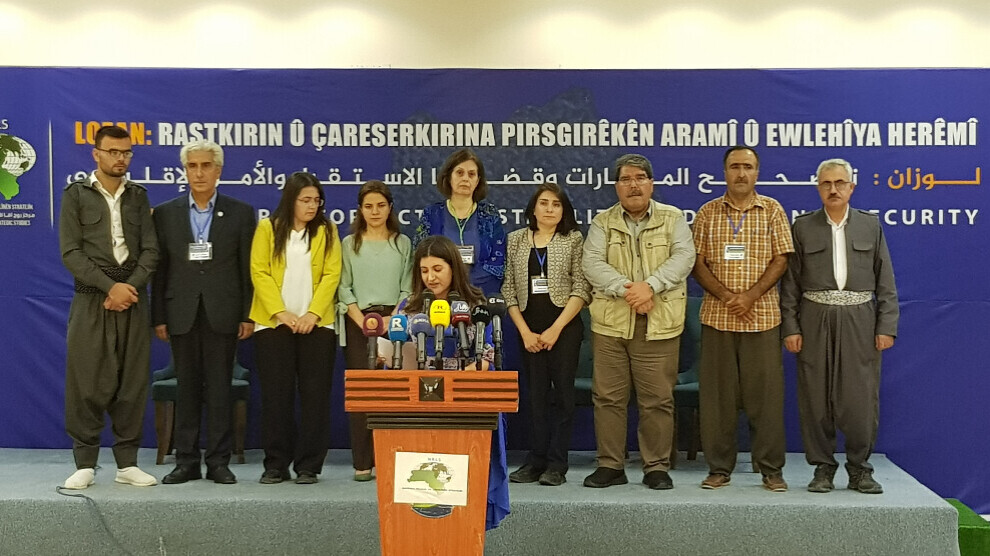The workshop "Lausanne: Course Correction, Stability and Regional Security” organized by the Rojava Center for Strategic Studies (NRLS) ended. 200 people from the cities of Kurdistan, Northern and Eastern Syria, Russia, Arab countries and international figures, political parties, academics, women's movements, social institutions and intellectuals participated in the workshop held in Hesekê. Journalist Amara Bawer read the final declaration of the two-day workshop in Kurdish, while NRLS member Rakan Şêxê read it in Arabic.
'Lausanne legitimized genocide'
The final declaration of the workshop said: "Participants confirmed that the Treaty of Lausanne, called the peace agreement, did not bring peace and stability to the Kurdish people and the people of the region, but legitimized the genocide of peoples and cultures. It declared war on these peoples by establishing nation states.”
The statement continued: “This treaty paved the way for the conclusion of many security agreements between the states of the region with steps such as national development, demographic change, political terror and changing historical facts, and denying the existence of the Kurdish people. The political, economic and security problems in the region are the result of the politicians who accepted this treaty.
Demands and suggestions
The following suggestions and demands were listed in the final declaration:
“*We confirm that the Treaty of Lausanne has not been able to achieve regional peace and stability even after a century has passed. The states responsible for this treaty must correct and resolve the problems arising from this treaty. They should stop supporting the states that use this treaty for their own interests and end the persecution of the Kurdish people.
* According to human rights treaties and the United Nations, states that are influential in international politics must accept the Kurdish cause and recognize the Kurdish people's right to political, cultural, economic, social and security self-determination. This right should be recognized within the framework of a national agreement and this agreement should be implemented together with the states dividing the Kurdistan territory.
* In order to protect the Kurdish people from genocide, Kurdish forces must strengthen and coordinate their political, economic and military capabilities. On this basis, Kurdish forces should sign a national agreement regardless of their differences. All parties must abide by this agreement.
* The Kurdish people are very sincere in this region, they do not pose a threat to the neighbouring peoples, so the states that divide the Kurdistan territories should reconsider their policies towards the Kurds and their right to life and accept the rights of the Kurds.
* As an idea and philosophy, the democratic nation presents itself as a possible solution to the problems and in favour of regional peace, the protection of ancient cultures in the region from extremism and the liberation of the people from indifference. This project is taking place in Northern and Eastern Syria under the roof of the Autonomous Administration.
* Protection, support and international recognition should be provided to the Autonomous Administration, which derives its legitimacy from its service, political and military institutions.
* The continuation of the attacks against the Kurdish people in all four parts of Kurdistan is the continuation of the Lausanne Agreement, which legitimizes the killing and displacement of the Kurdish people by nationalist states.
* The participants stated that public enemies do not comply with any international rules and agreements. The participants therefore ask the international powers to define a mechanism and accordingly compel criminal states to comply with laws and treaties.
* We affirm that the only way to overcome the consequences of the Treaty of Lausanne and to prevent new oppressive agreements in the region is to rely on the power of the people. For this reason, the participants of the working group call on the international community, together with all its relevant organs, to fulfil their responsibilities against the policies of neglect, denial and genocide. We also call on the legal committees and interested parties in Northern and Eastern Syria to follow the recommendations of the working group to relevant international parties."















